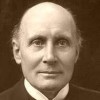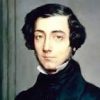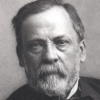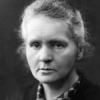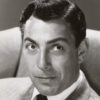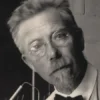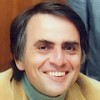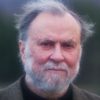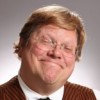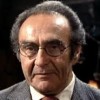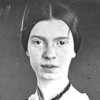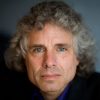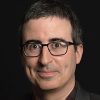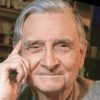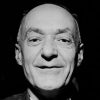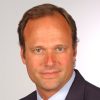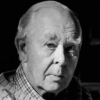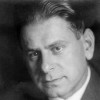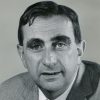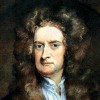How shallow, puny, and imperfect are efforts to sound the depths in the nature of things. In philosophical discussion, the merest hint of dogmatic certainty as to finality of statement is an exhibition of folly.
Alfred North Whitehead (1861-1947) English mathematician and philosopher
Process and Reality: An Essay in Cosmology, Preface (1929)
(Source)
The book is a collection of his Gifford Lectures, University of Edinburgh (1927-1928).
Quotations about:
science
Note not all quotations have been tagged, so Search may find additional quotes on this topic.
Thou knowest that since the invention of gun-powder, there is no place impregnable: that is to say, Usbek, there is no longer any asylum upon earth against injustice and violence. I always tremble for fear at last some invention will be found out of a shorter way to destroy mankind, and to depopulate whole nations and whole kingdoms.
[Tu sais que, depuis l’invention de la poudre, il n’y a plus de places imprenables ; c’est-à-dire, Usbek, qu’il n’y a plus d’asile sur la terre contre l’injustice et la violence. Je tremble toujours qu’on ne parvienne à la fin à découvrir quelque secret qui fournisse une voie plus abrégée pour faire périr les hommes, détruire les peuples et les nations entières.]
Charles-Lewis de Secondat, Baron de Montesquieu (1689-1755) French political philosopher
Persian Letters [Lettres Persanes], Letter 106, Rhedi to Usbek (1721) [tr. Ozell (1760 ed.), # 105]
(Source)
(Source (French)). Alternate translations:
Thou knowest, that since the Invention of gun-powder, there is no place impregnable; that is to say, Ushek, that there is not any longer an asylum upon earth against injustice and violence. I always tremble, left they should at arrive at last, at the discovery of some secret, which may furnish them with a shorter way to destroy mankind, and to depopulate whole nations and whole kingdoms.
[tr. Floyd (1762), # 105]
You know that since the invention of gunpowder no place is impregnable; that is to say, Usbek, that there is no longer upon the earth a refuge from injustice and violence. I dread always lest they should at last discover some secret which will furnish them with a briefer method of destroying men, by killing them off wholesale in tribes and nations.
[tr. Davidson (1891)]
You know that, since the invention of gunpowder, no fortress is impregnable; that is to say, Usbek, that there is no longer upon earth an asylum against injustice and violence. I am always in terror lest some secret or other should be at length discovered that will not only kill men, but destroy entire tribes and nations.
[tr. Betts (1897)]
You know that since the invention of gunpowder there have been no impregnable places; and this is to say, Usbek, that there is no longer an asylum from injustice and violence any¬ where on the earth. I am in constant terror that ultimately someone will succeed in discovering some secret which will furnish an even more efficient way to kill men, by destroying whole peoples and entire nations.
[tr. Healy (1964)]
You know, since the invention of gunpowder, no fortification is impregnable; in other words, Usbek, there no longer exists, anywhere on earth, any asylum from injustice and violence. I live in fear that men of science will eventually discover some secret which would offer a faster day to kill people, destroy races, and wipe out entire nations.
[tr. Mauldon (2008)]
You know that since the invention of gunpowder, no place is impregnable -- and that is to say, Usbek, that there is no place on earth where we are safe from injustice and violence. I tremble at the thought that eventually someone will discover some new secret that will lead to an even more efficient way to kill even more people, perhaps to destroy entire populations and nations.
[tr. MacKenzie (2014), # 105]
Again, we should notice the force, effect, and consequences of inventions, which are nowhere more conspicuous than in those three which were unknown to the ancients; namely, printing, gunpowder, and the compass. For these three have changed the appearance and state of the whole world; first in literature, then in warfare, and lastly in navigation: and innumerable changes have been thence derived, so that no empire, sect, or star, appears to have exercised a greater power and influence on human affairs than these mechanical discoveries.
[Rursus, vim et virtutem et consequentias rerum inventarum notare juvat; quae non in aliis manifestius occurrunt, quam in illis tribus quae antiquis incognitae, et quarum primordia, licet recentia, obscura et ingloria sunt: Artis nimirum Imprimendi, Pulveris Tormentarii, et Acus Nauticae. Haec enim tria rerum faciem et statum in orbe terrarum mutaverunt: primum, in re literaria; secundum, in re bellica; tertium, in navigationibus: unde innumerae rerum mutationes sequutae sunt; ut non imperium aliquod, non secta, non stella, majorem efficaciam et quasi influxum super res humanas exercuisse videatur, quam ista mechanica exercuerunt.]
Francis Bacon (1561-1626) English philosopher, scientist, author, statesman
Instauratio Magna [The Great Instauration], Part 2 “Novum Organum [The New Organon],” Book 1, Aphorism # 129 (1620) [tr. Wood (1831)]
(Source)
(Source (Latin)). Alternate translations:
Again, it is well to observe the force and virtue and consequences of discoveries; and these are to be seen nowhere more conspicuously than in those three which were unknown to the ancients, and of which the origin, though recent, is obscure and inglorious; namely, printing, gunpowder, and the magnet. For these three have changed the whole face and state of things throughout the world; the first in literature, the second in warfare, the third in navigation; whence have followed innumerable changes; insomuch that no empire, no sect, no star seems to have exerted greater power and influence in human affairs than these mechanical discoveries.
[tr. Spedding (1858)]
Again, it is well to mark the force, virtue, and consequences of discoveries; and these occur nowhere more manifestly than in those which were unknown to the ancients, and whose origin, though recent, is obscure and inglorious; the Arts, namely, of Printing, of Gunpowder, and the Mariner's Compass. For these three have changed the face and condition of things all over the world; the first in letters, the second in war, the third in navigation. And hence numberless changes have followed; so that no government, no sect, no star, seems to have exercised greater power and influence over human affairs than these mechanical discoveries.
[tr. Johnson (1859)]
Again, it helps to notice the force, power and consequences of discoveries, which appear at their clearest in three things that were unknown to antiquity, and whose origins, though recent, are obscure and unsung: namely, the art of printing, gunpowder and the nautical compass. In fact these three things have changed the face and condition of things all over the globe: the first in literature; the second in the art of war; the third in navigation; and innumerable changes have followed; so that no empire or sect or star seems to have exercised a greater power and influence on human affairs than those mechanical things.
[tr. Silverthorne (2000)]
Notice the vigour of discoveries, their power to generate consequences. This is nowhere more obvious than in three discoveries that the ancients didn’t know and whose origins (all quite recent) were obscure and humdrum. I am talking about the arts of printing, gunpowder, and the nautical compass. These three have changed the whole aspect and state of things throughout the world -- the first in literature, the second in warfare, the third in navigation -- bringing about countless changes; so that there seems to have been no empire, no philosophical system, no star that has exerted greater power and influence in human affairs than these mechanical discoveries.
[tr. Bennett (2017)]
However, the divisions of the sciences which we employ include not only things which have been noticed and discovered but also things that until now have been missed but should be there. For in the intellectual as in the physical world, there are deserts as well as cultivated places.
[Partitiones tamen Scientiarum adhibemus eas, quae non tantum jam inventa et nota, sed hactenus omissa et debita, complectantur. Etenim inveniuntur in globo intellectuali, quemadmodum in terrestri, et culta pariter et deserta.]
Francis Bacon (1561-1626) English philosopher, scientist, author, statesman
Instauratio Magna [The Great Instauration], “Distributo Operis [Plan of the Work]” (1620) [tr. Silverthorne (2000)]
(Source)
(Source (Latin)). Alternate translations:
But we also employ such a division of the sciences as will not only embrace what is already discovered and known, but what has hitherto been omitted and deficient. For there are both cultivated and desert tracts in the intellectual as in the terrestrial globe.
[tr. Wood (1831)]
In classing the sciences, we comprehend not only the things already invented and known, but also those omitted and wanted; for the intellectual globe, as well as the terrestrial, has both its frosts and deserts.
[tr. Wood/Devey (1844)]
In laying out the divisions of the sciences however, I take into account not only things already invented and known, but likewise things omitted which ought to be there. For there are found in the intellectual as in the terrestrial globe waste regions as well as cultivated ones.
[tr. Spedding (1858)]
A hypothesis which permits the prediction of certain effects that always reoccur under certain conditions does, in its way amount to a demonstrable certainty. Even the Newtonian system had no more than such a foundation.
[Une hypothèse qui permet de prévoir certains effets qui se reproduisent toujours ressemble absolument à une vérité démontrée. Le système de Newton ne repose guère sur un autre fondement. Si en réalité et de l aveu du.]
Alexis de Tocqueville (1805-1859) French writer, diplomat, politician
Letter to De Gobineau (1858-08-05)
(Source)
In the fields of observation, chance favors only the prepared mind.
[Dans les champs de l’observation, le hasard ne favorise que les espirits préparés.]
Louis Pasteur (1822-1895) French chemist, pharmacist, microbiologist
Speech, as new Dean of Science, University of Lille, France (1854-12-07)
(Source)
Often misattributed to Ansel Adams. It was, though, Adams' favorite aphorism, which he usually paraphrased as to "Chance favors the prepared mind."
Science doesn’t supply happiness; but neither does its lack. The same can be said of social utopias: they aren’t created by science, but neither does lack of science provide them. Science has cast up dangerous and cruel knowledge, which has been exploited for warfare and dictatorial power; but so have cultures so little gifted with scientists that they either make do with imported weapons or rely on clubs, axes, and daggers. Scientific information about our mistakes — for instance, that deforestation invites mud slides and deserts, that overfishing depletes fish stocks — doesn’t guarantee we will avoid such mistakes or correct them, but that is owing to failure to heed what science uncovers.
Jane Jacobs (1916-2006) American-Canadian journalist, author, urban theorist, activist
Dark Age Ahead, ch. 3 “Science Abandoned” (2004)
(Source)
To science, not even the bark of a tree or a drop of pond water is dull or a handful of dirt banal. They all arouse awe and wonder.
Jane Jacobs (1916-2006) American-Canadian journalist, author, urban theorist, activist
Dark Age Ahead, ch. 4 “Science Abandoned” (2004)
(Source)
Knowledge is not happiness, and science
But an exchange of ignorance for that
Which is another kind of ignorance.George Gordon, Lord Byron (1788-1824) English poet
“Manfred,” Act 2, sc. 4 [First Destiny] (1817)
(Source)
Sorrow is knowledge: they who know the most
Must mourn the deepest o’er the fatal truth,
The Tree of Knowledge is not that of Life.George Gordon, Lord Byron (1788-1824) English poet
“Manfred,” Act 1, sc. 1 [Manfred] (1817)
(Source)
I am among those who think that science has great beauty. A scientist in his laboratory is not only a technician: he is also a child placed before natural phenomena which impress him like a fairy tale. We should not allow it to be believed that all scientific progress can be reduced to mechanisms, machines, gearings, even though such machinery also has its beauty.
Marie Curie (1867-1934) Polish-French physicist and chemist [b. Maria Salomea Skłodowska]
“The Future of Culture [L’Avenir de la Culture]” conference, Madrid (1933-05-03/07)
(Source)
One of Curie's last public addresses. As quoted in Eve Curie Labouisse, Madame Curie: A Biography, ch. 24 (1937) [tr. Sheean (1938)].
Alternate translation:
I believe that science has great beauty. A scientist int he laboratory is not a mere technician; he is also a child confronting natural phenomena that impress him as though they were fairy tales. We should not allow it to believed that all scientific progress can be reduced to mechanisms, machines, and gearings, even though such machine also has beauty.
[Source]
We must not forget that when radium was discovered no one knew that it would prove useful in hospitals. The work was one of pure science. And this is a proof that scientific work must not be considered from the point of view of the direct usefulness of it. It must be done for itself, for the beauty of science, and then there is always the chance that a scientific discovery may become like the radium a benefit for humanity.
Marie Curie (1867-1934) Polish-French physicist and chemist [b. Maria Salomea Skłodowska]
“The Discovery of Radium,” lecture, Vassar College (1921-05-14)
(Source)
Can’t you understand that if you take a law like evolution and make it a crime to teach it in public schools, tomorrow you could make it a crime to teach it in private schools, and tomorrow you may make it a crime to read about it? And soon you may ban books and newspapers. And then you may turn Catholic against Protestant, and Protestant against Protestant, and try to foist your own religion upon the mind of man. If you can do one you can do the other, because fanaticism and ignorance is forever busy and needs feeding.
Nedrick Young (1914-1968) American screenwriter and actor [pseud. Nathan E. Douglas]
Inherit the Wind, film (1960) [with Harold Jacob Smith]
(Source)
The original 1951 play was written by Jerome Lawrence and Robert E. Lee, but does not include this line, delivered in the film by Spencer Tracy. Young and Smith share the screenwriting credits.
There are a number of things that science can’t deal with. All questions of values. for example. Science won’t tell you what is good and what is bad — what is good or bad as an end, not just as a means.
Bertrand Russell (1872-1970) English mathematician and philosopher
Interview by Woodrow Wyatt, BBC TV (1959)
(Source)
Collected in Bertrand Russell's BBC Interviews (1959) [UK] and Bertrand Russell Speaks His Mind (1960) [US]. Reprinted (abridged) in The Humanist (1982-11/12), and in Russell Society News, #37 (1983-02).
Nothing reveals more clearly men’s attitude to learning and literature, and what use they think these are to the State, than the low price they put on them, and their opinion of those who have chosen to practice them.
[Rien ne découvre mieux dans quelle disposition sont les hommes à l’égard des sciences et des belles-lettres, et de quelle utilité ils les croient dans la république, que le prix qu’ils y ont mis, et l’idée qu’ils se forment de ceux qui ont pris le parti de les cultiver.]
Jean de La Bruyère (1645-1696) French essayist, moralist
The Characters [Les Caractères], ch. 12 “Of Opinions [Des Jugements],” § 17 (12.17) (1688) [tr. Stewart (1970)]
(Source)
(Source (French)). Alternate translations:
Nothing discovers better what disposition men have to Knowledge and Learning, and how profitable they are esteem'd to the Publick, than the price which is set on them, and the Idea they have formed of those who have taken the pains to improve them.
[Bullord ed. (1696)]
Nothing discovers better what regard Men have to Science and polite Learning, and how profitable they esteem them to the Publick, than the price they set on them, and the Idea they form to themselves of those who have taken the pains to cultivate them.
[Curll ed. (1713)]
Nothing better manifests the Regard paid to the Sciences and Literature, and Men's Sense of their Utility to the Public, than the Recompences assigned to them, and the Repute in which they stand who excel in them.
[Browne ed. (1752)]
Nothing better demonstrates how men regard science and literature, and of what use they are considered in the State, than the recompense assigned to them, and the idea generally entertained of those persons who resolve to cultivate them.
[tr. Van Laun (1885)]
You will hear things like, “Science doesn’t know everything.” Well, of course science doesn’t know everything. But because science doesn’t know everything, that doesn’t mean science knows nothing. Science knows enough for us to be watched by a few million people now on television, for these lights to be working, for quite extraordinary miracles to have taken place in terms of the harnessing of the physical world and our dim approaches towards understanding it.
We may fondly imagine that we are impartial seekers after truth, but with a few exceptions, to which I know that I do not belong, we are influenced, and sometimes strongly, by our personal bias; and we give our best thoughts to those ideas which we have to defend.
Nevertheless, we should of course all do our best to avoid controversy, in the sense that we should take every possible care to verify our facts and substantiate our conclusions before we publish our results.
August Krogh (1874-1949) Danish zoophysiologist, academic
“The Progress of Physiology,” Speech, International Congress of Physiological Sciences, Harvard University (1929-08-19)
(Source)
Reprinted in Science (1929-08-30). Quoted in Bodil Schmidt-Nielsen, August and Marie Krogh: Lives in Science, ch. 9 (1995).
Science as subversion has a long history. There is a long list of scientists who sat in jail and of other scientists who helped them get out and incidentally saved their lives. […] [Chandler] Davis and [Andrei] Sakharov belong to an old tradition in science that goes all the way back to the rebels Benjamin Franklin and Joseph Priestley in the eighteenth century, to Galileo and Giordano Bruno in the seventeenth and sixteenth. If science ceases to be a rebellion against authority, then it does not deserve the talents of our brightest children. […] We should try to introduce our children to science today as a rebellion against poverty and ugliness and militarism and economic injustice.
Freeman Dyson (1923-2020) English-American theoretical physicist, mathematician, futurist
The Scientist as Rebel, Part 1, ch. 1 “The Scientist as Rebel” (2006)
(Source)
Originally given as a lecture in Cambridge, England (1992-11). Published as "The Scientist as Rebel," in John Cornwell, ed., Nature's Imagination, Introduction (1995), and "The Scientist as Rebel," New York Review of Books (1995-05-25).
Progress in science is often built on wrong theories that are later corrected. It is better to be wrong than to be vague.
Freeman Dyson (1923-2020) English-American theoretical physicist, mathematician, futurist
The Scientist as Rebel, Part 3, ch. 19 “The World on a String” (2006)
(Source)
Originally published in New York Review of Books (2003-11-06).
There is no such thing as a unique scientific vision, any more than there is a unique poetic vision. Science is a mosaic of partial and conflicting visions. But there is one common element in these visions. The common element is rebellion against the restrictions imposed by the locally prevailing culture, Western or Eastern as the case may be. It is no more Western than it is Arab or Indian or Japanese or Chinese. Arabs and Indians and Japanese and Chinese had a big share in the development of modern science. And two thousand years earlier, the beginnings of science were as much Babylonian and Egyptian as Greek. One of the central facts about science is that it pays no attention to East and West and North and South and black and yellow and white. It belongs to everybody who is willing to make the effort to learn it. And what is true of science is true of poetry. Poetry was not invented by Westerners. India has poetry older than Homer. Poetry runs as deep in Arab and Japanese culture as it does in Russian and English. Just because I quote poems in English, it does not follow that the vision of poetry has to be Western. Poetry and science are gifts given to all of humanity.
Freeman Dyson (1923-2020) English-American theoretical physicist, mathematician, futurist
The Scientist as Rebel, Part 1, ch. 1 “The Scientist as Rebel” (2006)
(Source)
Originally given as a lecture in Cambridge, England (1992-11). Published as "The Scientist as Rebel," in John Cornwell, ed., Nature's Imagination, Introduction (1995), and "The Scientist as Rebel," New York Review of Books (1995-05-25).
Scientists and business leaders who care about social justice should join forces with environmental and religious organizations to give political clout to ethics. Science and religion should work together to abolish the gross inequalities that prevail in the modern world. That is my vision, and it is the same vision that inspired Francis Bacon four hundred years ago, when he prayed that through science God would “endow the human family with new mercies.”
Somewhere, something incredible is waiting to be known.
Carl Sagan (1934-1996) American scientist and writer
(Spurious)
The words come from a profile of Sagan, "Seeking Other Worlds," Newsweek (15 Aug 1977). The final paragraph reads:
“A serious search with negative results says something of profound importance,” Sagan argues. “We discover there’s something almost forbidden about life ... if it turns out we really are alone.” But clearly, Sagan is looking for a happier result. There may be no galumphing green Barsoomian giants to satisfy the fantasies of a romantic Brooklyn boy. But no doubt, there are even stranger discoveries to be made ... some totally new phenomenon perhaps ... Somewhere, something incredible is waiting to be known.
Those final words, not a quotation, have been broadly mistaken for an actual statement by Sagan.
Sharon Begley, one of the writers of the article, has confirmed the words are hers.
Sagan's daughter , Sasha Sagan, has also disavowed the quotation, noting that her father would never have used "incredible" in such a context, as the word literally means "not credible."
More discussion: Somewhere, Something Incredible Is Waiting To Be Known – Quote Investigator®.
Therefore Father, you who have given visible light as the first fruits of creation and, at the summit of your works, have breathed intellectual light into the face of man, protect and govern this work, which began in your goodness and and returns to your glory.
[Itaque Tu Pater, qui lucem visibilem primitias creaturae dedisti, et lucem intellectualem ad fastigium operum tuorum in faciem hominis inspirasti; opus hoc, quod a tua bonitate profectum tuam gloriam repetit, tuere et rege.]
Francis Bacon (1561-1626) English philosopher, scientist, author, statesman
Instauratio Magna [The Great Instauration], “Distributo Operis [Plan of the Work]” (1620) [tr. Silverthorne (2000)]
(Source)
(Source (Latin)). Alternate translations:
May thou, therefore, O Father, who gavest the light of vision as the first-fruits of creation, and hast inspired the countenance of man with the light of the understanding as the completion of thy works, guard and direct this work, which, proceeding from thy bounty, seeks in return thy glory.
[tr. Wood (1831)]
May thou, therefore, O Father, who gavest the light of vision as the first fruit of creation, and who hast spread over the fall of man the light of thy understanding as the accomplishment of thy works, guard and direct this work, which, issuing from thy goodness, seeks in return thy glory!
[tr. Wood/Devey (1844)]
Therefore do thou, O Father, who gavest the visible light as the first fruits of creation, and didst breathe into the face of man the intellectual light as the crown and consummation thereof, guard and protect this work, which coming from thy goodness returneth to thy glory.
[tr. Spedding (1858)]
The great question for our time is, how to make sure that the continuing scientific revolution brings benefits to everybody rather than widening the gap between rich and poor. To lift up poor countries, and poor people in rich countries, from poverty, to give them a chance of a decent life, technology is not enough. Technology must be guided and driven by ethics if it is to do more than provide new toys for the rich.
Freeman Dyson (1923-2020) English-American theoretical physicist, mathematician, futurist
“Progress in Religion,” Templeton Prize acceptance speech, Washington National Cathedral (9 May 2000)
(Source)
Trouble arises when either science or religion claims universal jurisdiction, when either religious dogma or scientific dogma claims to be infallible. Religious creationists and scientific materialists are equally dogmatic and insensitive. By their arrogance they bring both science and religion into disrepute. The media exaggerate their numbers and importance. The media rarely mention the fact that the great majority of religious people belong to moderate denominations that treat science with respect, or the fact that the great majority of scientists treat religion with respect so long as religion does not claim jurisdiction over scientific questions.
Freeman Dyson (1923-2020) English-American theoretical physicist, mathematician, futurist
“Progress in Religion,” Templeton Prize acceptance speech, Washington National Cathedral (9 May 2000)
(Source)
Science and religion are two windows that people look through, trying to understand the big universe outside, trying to understand why we are here. The two windows give different views, but they look out at the same universe. Both views are one-sided, neither is complete. Both leave out essential features of the real world. And both are worthy of respect.
Freeman Dyson (1923-2020) English-American theoretical physicist, mathematician, futurist
“Progress in Religion,” Templeton Prize acceptance speech, Washington National Cathedral (9 May 2000)
(Source)
I am content to be one of the multitude of Christians who do not care much about the doctrine of the Trinity or the historical truth of the gospels. Both as a scientist and as a religious person, I am accustomed to living with uncertainty. Science is exciting because it is full of unsolved mysteries, and religion is exciting for the same reason.
Freeman Dyson (1923-2020) English-American theoretical physicist, mathematician, futurist
“Progress in Religion,” Templeton Prize acceptance speech, Washington National Cathedral (9 May 2000)
(Source)
So all fathers took all sons out for walks in the woods one Sunday afternoon. The next day, Monday, we were playing in the fields and this boy said to me, “See that bird standing on the stump there? What’s the name of it?”
I said, “I haven’t got the slightest idea.” He said, ‘It’s a brown-throated thrush. Your father doesn’t teach you much about science.”
I smiled to myself, because my father had already taught me that [the name] doesn’t tell me anything about the bird. He taught me “See that bird? It’s a brown-throated thrush, but in Germany it’s called a halsenflugel, and in Chinese they call it a chung ling and even if you know all those names for it, you still know nothing about the bird — you only know something about people; what they call that bird. Now that thrush sings, and teaches its young to fly, and flies so many miles away during the summer across the country, and nobody knows how it finds its way,” and so forth. There is a difference between the name of the thing and what goes on.
Richard Feynman (1918-1988) American physicist
“What is Science?” speech, National Science Teachers Association, New York City (1966)
(Source)
Reprinted in The Physics Teacher, Vol. 7, issue 6 (Sep 1969)
Feynman spoke often about his father, Melvin, and the early science education he got from him. The final phrase above shows up frequently in Feynman's writings and lectures. Variations of the overall story show up in biographies and references, including this version from his autobiographical What Do You Care What Other People Think?, ch. 1 (1988) [with Ralph Leighton]:
So it ended up that the other fathers had to take their children for walks the next weekend. The next Monday, when the fathers were all back at work, we kids were playing in a field. One kids says to me, "See that bird? What kind of bird is that?"
I said, "I haven't the slightest idea of what kind of bird it is." He says, "It's a brown-throated thrush. Your father doesn't teach you anything."
But it was the opposite. He had already taught me: "See that bird?" he said. "It's a Spencer's warbler." (I knew he didn't know the real name.) "Well, in Italian, it's a Chutto Lapittida. In Portuguese, it's a Bom da Peida. In Chinese, it's a Chung-long-tah, and in Japanese it's a Katano Tekeda. You can know the name of that bird in all the languages of the world, but when you're finished, you'll know absolutely nothing whatever about the bird. You'll only know about humans in different places, and what they call the bird. So let's look at the bird and see what it's doing -- that's what counts." (I learned very early the difference between knowing the name of something and knowing something.)
The world is not to be confined (as hitherto) within the straits of the intellect, but the intellect is to be enlarged to receive the image of the world, such as it is.
[Neque enim arctandus est mundus ad angustias intellectus (quod adhue factum est), sed expandendus intellectus et laxandus ad mundi imaginem recipiendam, qualis invenitur.]
Francis Bacon (1561-1626) English philosopher, scientist, author, statesman
Instauratio Magna [The Great Instauration], Part 3 “Parsceve ad Historiam Naturalem [Preparatory for Natural History],” “Aphorisms on the Composition of the Primary History,” # 4 (1622) [tr. Oxenford (1857)]
(Source)
(Source (Latin)). Alternate translations:
For the World ought not to be tyed into the straightness of the understanding (which hitherto hath been done) but our Intellect should be stretched and widened, so as to be capable of the Image of the World, such as we find it.
[Source (1670)]
For the world is not to be narrowed till it will go into the understanding (which has been done hitherto), but the understanding to be expanded and opened till it can take in the image of the world, as it is in fact.
[tr. Spedding/Ellis/Heath (c. 1900)]
Scientifically speaking, a butterfly is at least as mysterious as a superstring. When something ceases to be mysterious it ceases to be of absorbing interest to scientists. Almost all things scientists think and dream about are mysterious.
Freeman Dyson (1923-2020) English-American theoretical physicist, mathematician, futurist
Infinite in All Directions, Part 1, ch. 2 “Butterflies and Superstrings” (1988)
(Source)
Based on his Gifford Lectures, Aberdeen, Scotland (Apr-Nov 1985).
Science is not a monolithic body of doctrine. Science is a culture, constantly growing and changing. The science of today has broken out of the molds of classical nineteenth-century science, just as the paintings of Pablo Picasso and Jackson Pollock broke out of the molds of nineteenth century art. Science has as many competing styles as painting or poetry.
Freeman Dyson (1923-2020) English-American theoretical physicist, mathematician, futurist
Infinite in All Directions, Part 1, ch. 1 “In Praise of Diversity” (1988)
(Source)
Based on a lecture on "Science and Religion," National Conference of Catholic Bishops, Detroit (Sep 1986)
Science and religion are two human enterprises sharing many features. They share these features also with other enterprises such as art, literature and music. The most salient features of all these enterprises are discipline and diversity. Discipline to submerge the individual fantasy in a greater whole. Diversity to give scope to the infinite variety of human souls and temperaments. Without discipline there can be no greatness. Without diversity there can be no freedom. Greatness for the enterprise, freedom for the individual — these are the two themes, contrasting but not incompatible, that make up the history of science and the history of religion.
Freeman Dyson (1923-2020) English-American theoretical physicist, mathematician, futurist
Infinite in All Directions, Part 1, ch. 1 “In Praise of Diversity” (1988)
(Source)
Based on a lecture on "Science and Religion," National Conference of Catholic Bishops, Detroit (Sep 1986).
A good scientist is a person with original ideas. A good engineer is a person who makes a design that works with as few original ideas as possible. There are no prima donnas in engineering.
Freeman Dyson (1923-2020) English-American theoretical physicist, mathematician, futurist
Disturbing the Universe, ch. 10 (1979)
(Source)
There is an enormous variety of things we’ve discovered that we never dreamed of, like, for example, black holes, pulsars, quasars, all these unbelievably active goings-on in the universe. Which in Aristotle’s time the universe, the sky, was supposed to be quiescent, it was supposed to be perfect and peaceful, and nothing ever happened in the celestial sphere; and that remained true, actually, throughout all of the revolutions. It remained the general view of astronomers right through Copernicus, and Galileo, and Newton, and everybody else, still, the universe looked very quiescent — until just the last thirty years, and now we know it’s not like that at all. In fact the universe is full of violent events, and fantastic, strong gravitational fields, and collapsed objects, and huge outpourings of energy. All these things were discovered in the last thirty years.
Freeman Dyson (1923-2020) English-American theoretical physicist, mathematician, futurist
“Freeman Dyson: In Praise of Diversity,” Interview on A Glorious Accident, VPRO (Netherlands) (30 Aug 2016)
(Source)
We cannot learn what causes violence and how we could prevent it as long as we are thinking in the traditional moral and legal terms. The only questions that this way of thinking can ask take the form: “How evil (or heroic) was this particular act of violence, and how much punishment (or reward) does the person who did it deserve?” But even if it were possible to gain the knowledge that would be necessary to answer those questions (which it is not), answers would still not help us in the least to understand what causes violence or how we could prevent it — these are empirical not moral questions.
James Gilligan (b. c. 1936) American psychiatrist and author
Preventing Violence, Introduction (2001)
(Source)
Much of the joy of science is the joy of solid work done by skilled workmen. Many of us are happy to spend our lives in collaborative efforts where to be reliable is more important than to be original. There is a great satisfaction in building good tools for other people to use.
Freeman Dyson (1923-2020) English-American theoretical physicist, mathematician, futurist
Disturbing the Universe, ch. 1 (1979)
(Source)
Just how Sparks are able to warp the laws of time and motion (among others) has never been successfully analyzed. People who try to carefully watch them report suffering a sort of cognitive dissonance where they simply cannot remember what happened even though it happened right in front of them. These, as it turns out, are the lucky ones, as most people who get too close to a Spark who is happily building something tend to wake up and realize that they have become components.
Phil Foglio (b. 1956) American writer, cartoonist
Agatha H and the Voice of the Castle (2014) [with Kaja Foglio]
(Source)
I, having built a house, reject
The feud of eye and intellect,
And find in my experience proof
One pleasure runs from root to roof,
One thrust along a streamline arches
The sudden star, the budding larches.The force that makes the winter grow
Its feathered hexagons of snow,
and drives the bee to match at home
Their calculated honeycomb,
Is abacus and rose combined.
An icy sweetness fills my mind,A sense that under thing and wing
Lies, taut yet living, coiled, the spring.Jacob Bronowski (1908-1974) Polish-English humanist and mathematician
“The Abacus and the Rose” (1965)
(Source)
First published in Bronowski, Science and Human Values (1965 ed.).
Faith is a fine invention
For gentlemen who see;
But microscopes are prudent
In an emergency.
Everyone had heard about Abominations of Science but, like unicorns, they didn’t actually believe they existed. Thus everyone was rather grateful when the third Madrid Conference of Scientific Inquiry and Philosophical Horrors — Unleashed! released a codified list of things that constituted actual Abominations of Science. Over the years, this useful list has been updated and curated by our own Transylvanian Polygnostic University and has proven of great use to teachers, courts, and record books.
The only downside was that one of the conference members — a Herr Doktor Spanakopita — was so embarrassed that none of his previous efforts met the requirements that he, in a fit of pique, bred a race of unicorns, who went about stabbing people while quoting the parts of the list that covered biological abominations. Before he was stabbed to death, he was graciously acknowledged as a genuine Tamperer in Things Man Was Not Meant to Know and his oft-desecrated gravestone lists his accomplishments in full.
Phil Foglio (b. 1956) American writer, cartoonist
Agatha H. and the Siege of Mechanicsburg (2020) [with Kaja Foglio]
(Source)
Science is in far greater danger from the absence of challenge than from the coming of any number of even absurd challenges.
Isaac Asimov (1920-1992) Russian-American author, polymath, biochemist
“The Role of the Heretic,” Foreword to Donald W. Goldsmith (ed.), Scientists Confront Velikovsky (1977)
(Source)
The radical novelty of modern science lies precisely in the rejection of the belief, which is at the heart of all popular religion, that the forces which move the stars and atoms are contingent upon the preferences of the human heart.
Walter Lippmann (1889-1974) American journalist and author
A Preface to Morals, Part 1, ch. 7 (1929)
(Source)
As an experimental psychologist, I have been trained not to believe anything unless it can be demonstrated in the laboratory on rats or sophomores.
Steven Pinker (b. 1954) Canadian-American cognitive psychologist, linguist, author
Words and Rules, ch. 4 (1999)
(Source)
Some people think that evolutionary psychology claims to have discovered that human nature is selfish and wicked. But they are flattering the researchers and anyone who would claim to have discovered the opposite. No one needs a scientist to measure whether humans are prone to knavery. The question has been answered in the history books, the newspapers, the ethnographic record, and the letters to Ann Landers. But people treat it like an open question, as if someday science might discover that it’s all a bad dream and we will wake up to find that it is human nature to love one another.
Steven Pinker (b. 1954) Canadian-American cognitive psychologist, linguist, author
How the Mind Works, ch. 7 (1997)
(Source)
If every trace of any single religion were wiped out and nothing were passed on, it would never be created exactly that way again. There might be some other nonsense in its place, but not that exact nonsense. If all of science were wiped out, it would still be true and someone would find a way to figure it all out again.
Penn Jillette (b. 1955) American stage magician, actor, musician, author
“Passing Down the Joy of Not Collecting Stamps,” God, No!: Signs You May Already Be an Atheist and Other Magical Tales (2011)
(Source)
That is, natural selection built the brain to survive in the world and only incidentally to understand it at a depth greater than is needed to survive. The proper task of scientists is to diagnose and correct the misalignment.
E. O. Wilson (1929-2021) American biologist, naturalist, writer [Edward Osborne Wilson]
Consilience, ch. 4 (1998)
(Source)
A common fallacy in much of the adverse criticism to which science is subjected today is that it claims certainty, infallibility and complete emotional objectivity. It would be more nearly true to say that it is based upon wonder, adventure and hope.
Cyril Norman Hinshelwood (1897-1967) British chemist and Nobel laureate
“Classics among the intellectual disciplines,” Presidential Address to the Classical Association, Hull, UK (1959-04-09)
Quoted in the Sunday Times (1959-05-17), and in E. J. Bowen's obituary of Hinshelwood, in Chemistry in Britain, Vol. 3 (1967), p. 534.
When I hear scientists say, “The data speak for themselves,” I cringe. Data never speak.
Andrew J. Hoffman (b. 1961) American environmental scientist, sustainable enterprise scholar
“Taking On Climate Skepticism as a Field of Study,” Interview by Felicity Barringer, New York Times (9 Apr 2011)
(Source)
If you try and take a cat apart to see how it works, the first thing you have on your hands is a non-working cat.
Douglas Adams (1952-2001) English writer
Speech, Digital Biota 2 conference, Cambridge, UK (Sep 1998)
(Source)
Segments of this impromptu speech are quoted in Richard Dawkins, "Eulogy for Douglas Adams," Church of Saint Martin in the Fields, London (27 Sep 2001). A variant of the quotation ("If you try and take a cat apart to see how it works, you end up with a non-working cat. Do not try this.") is often attributed to that article, but the Dawkins eulogy contains the correct form of the quote.
It must be remembered that evidence is never complete, that knowledge of truth is always partial, and that to await certainty is to await eternity.
John Bowlby 1907-1990) British psychologist, psychiatrist, psychoanalyst
Maternal Care and Mental Health (1951)
(Source)
The last phrase is often attributed to Jonas Salk, who used it ("It is said to await certainty is to await eternity") in a telegram to Basil O'Connor (8 Nov 1954). But as Salk himself noted, it was not original to him.
Since we can never know anything for sure, it is simply not worth searching for certainty; but it is well worth searching for truth; and we do this chiefly by searching for mistakes, so that we have to correct them.
Sir Karl Popper (1902-1994) Austrian-British philosopher
“Knowledge and the Shaping of Reality,” lecture, Alpbach (Aug 1982)
(Source)
Reprinted in In Search of a Better World, ch. 1 (1994).
Physics is, hopefully, simple. Physicists are not.
Edward Teller (1908-2003) Hungarian-American theoretical physicist
Conversations on the Dark Secrets of Physics, ch. 10 (1991) [with Wendy Teller and Wilson Talley]
(Source)
A fact is a simple statement that everyone believes. It is innocent, unless found guilty. A hypothesis is a novel suggestion that no one wants to believe. It is guilty, until found effective.
Edward Teller (1908-2003) Hungarian-American theoretical physicist
Conversations on the Dark Secrets of Physics, ch. 5 (1991) [with Wendy Teller, Wilson Talley]
(Source)
What certainty can there be in a Philosophy which consists in as many Hypotheses as there are Phenomena to be explained. To explain all nature is too difficult a task for any one man or even for any one age. ‘Tis much better to do a little with certainty, & leave the rest for others that come after you, than to explain all things by conjecture without making sure of any thing.
Isaac Newton (1642-1727) English physicist and mathematician
Opticks, Preface (unpublished) (1703)
(Source)

